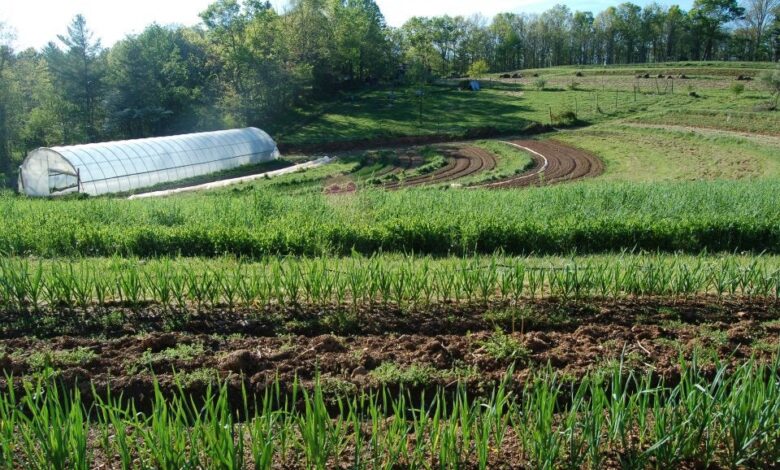What To Consider When Starting A Farming Business

What To Consider When Starting A Farming Business. Starting a farming business requires careful planning, a deep understanding of the agricultural industry, and consideration of various factors that can impact your success. Here are key considerations when starting a farming business:
Type of Farming
The type of farming you choose will determine your business model, required resources, and market opportunities. Options include crop farming, livestock farming, aquaculture, poultry farming, or mixed farming. Research the demand for different agricultural products in your area, the climate and soil conditions, and your personal interests and expertise. For example, crop farming may be more suitable in areas with fertile soil, while livestock farming might be better in regions with ample grazing land. Consider whether you want to focus on organic farming, which may command higher prices but require more stringent practices. Choosing the right type of farming sets the foundation for your business and aligns your operations with market demand and environmental conditions.
Location and Land
The location of your farm is critical to its success, affecting everything from crop yield to access to markets. The land itself should be suitable for the type of farming you plan to do. Evaluate the soil quality, climate, water availability, and proximity to markets. Ensure the land is large enough to accommodate your farming activities and has the potential for expansion. Access to good transportation infrastructure is also important for distributing your products. Additionally, consider legal aspects such as land ownership, zoning laws, and environmental regulations. Selecting the right location and land ensures that your farm is productive and that you can efficiently get your products to market.
Capital and Financing
Farming requires significant upfront investment in land, equipment, seeds, livestock, and other inputs. Securing adequate financing is crucial to get your business off the ground. Determine the total capital needed to start and sustain your farming business until it becomes profitable. Explore different financing options such as bank loans, government grants, agricultural subsidies, or partnerships. Create a detailed financial plan, including a budget for operational costs, and consider the risks involved in farming, such as crop failure or price fluctuations. Adequate financing ensures that you can cover startup costs and manage cash flow, allowing your farming business to grow and sustain itself.
Knowledge and Skills
Farming is both a science and an art that requires a deep understanding of agricultural practices, business management, and the specific needs of the crops or livestock you intend to raise. Gain knowledge and skills through formal education, agricultural training programs, or hands-on experience. Familiarize yourself with modern farming techniques, pest control, crop rotation, and sustainable practices. Understanding market trends, pricing strategies, and supply chain management is also essential. Consider hiring or consulting with experts if you lack certain expertise. Having the necessary knowledge and skills increases your chances of running a successful farming business, reducing the risk of costly mistakes.
Market Research and Demand
Understanding the market demand for your products is crucial for making informed decisions about what to produce and how to price it. Conduct thorough market research to identify your target customers, the demand for different agricultural products, and the competition. Determine whether you’ll sell directly to consumers, through wholesalers, or to food processing companies. Consider the seasonality of demand and how it might affect your sales. Additionally, assess the potential for value-added products, such as organic produce or processed goods, which may offer higher profit margins. Effective market research helps you align your production with demand, ensuring that you can sell your products at a profit and minimize waste.
Legal and Regulatory Compliance
The agricultural industry is subject to various regulations, including those related to land use, environmental protection, food safety, and labor laws. Ensure that your farming business complies with all local, provincial, and national regulations. This includes obtaining the necessary licenses and permits, adhering to health and safety standards, and meeting any environmental requirements, such as water usage restrictions or pesticide regulations. Be aware of tax obligations and consider how to structure your business legally (e.g., sole proprietorship, partnership, or corporation). Compliance with legal and regulatory requirements protects your business from fines, legal disputes, and potential shutdowns, allowing you to operate smoothly.
Sustainability and Environmental Impact
Sustainable farming practices are increasingly important as consumers and regulators demand more environmentally friendly products. Sustainability also ensures the long-term viability of your land and resources. Implement practices that conserve water, protect soil health, and minimize the use of chemical inputs. Consider adopting organic farming methods or integrated pest management. Evaluate the environmental impact of your farming activities and explore renewable energy options, such as solar or wind power. Sustainability certifications can also enhance your marketability and attract eco-conscious consumers. Sustainable practices not only protect the environment but also improve your farm’s resilience to climate change and enhance your brand’s reputation.
Technology and Innovation
Modern farming increasingly relies on technology to improve efficiency, productivity, and profitability. Embracing innovation can give your farm a competitive edge. Explore the use of agricultural technology such as precision farming, automated irrigation systems, drones for monitoring crops, and data analytics for decision-making. Invest in high-quality equipment that can scale with your business. Consider the role of biotechnology in improving crop yields or livestock health. Stay informed about the latest advancements in agricultural technology and how they can benefit your specific farming operation. Leveraging technology increases efficiency, reduces labor costs, and enhances productivity, enabling your farm to scale and compete effectively.
Risk Management and Insurance
Farming is inherently risky due to factors like weather conditions, pests, diseases, and market fluctuations. Effective risk management strategies are essential to protect your investment. Identify the risks specific to your farming operation and develop contingency plans to address them. Consider crop diversification, which can reduce the impact of a poor yield in one area. Invest in appropriate insurance policies to protect against natural disasters, crop failure, equipment breakdowns, and liability issues. Understanding and managing risks will help you navigate challenges and ensure business continuity. Effective risk management protects your farm from potential losses, ensuring long-term sustainability and financial stability.
Networking and Industry Connections
Building a network within the agricultural industry can provide valuable resources, support, and opportunities for collaboration. Join agricultural associations, cooperatives, or farmer groups to connect with other farmers, suppliers, and industry experts. Attend agricultural trade shows, workshops, and conferences to stay informed about industry trends and best practices. Networking can also lead to partnerships, joint ventures, or access to new markets. A strong network provides support, knowledge, and opportunities that can help your farming business grow and thrive.




